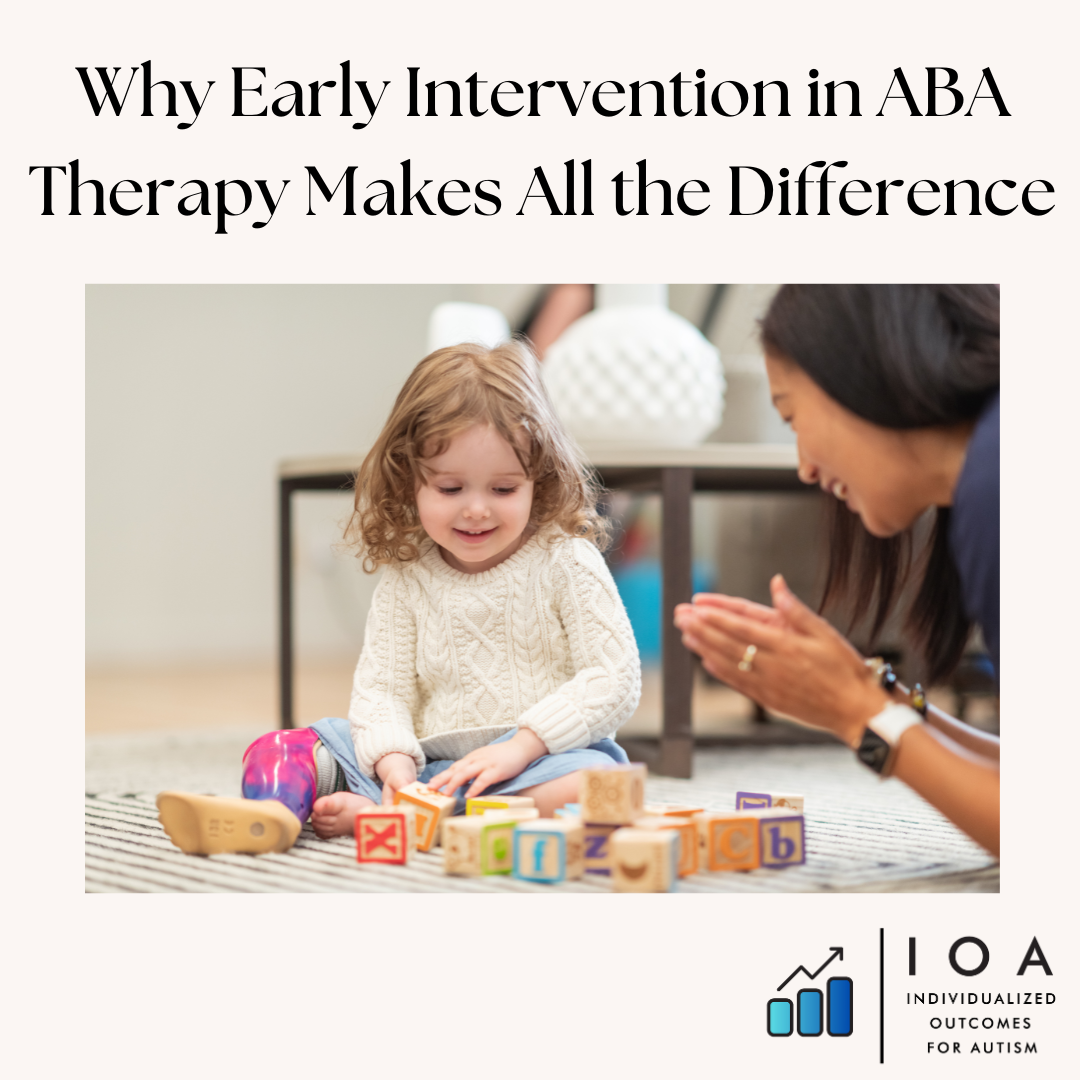Angela Khater MA, BCBA, LBA
A common theme parents of children with autism often ask me is if my child is too young to start ABA therapy. There is a natural urgency to make sure we are doing the right things at the right time for our little one. Early intervention is so crucial for children showing signs of developmental delays or autism spectrum disorder.
A child’s developing brain is like a sponge. In those first few years of life, our little ones are absorbing everything around them at an incredible rate. Their brains are forming connections at lightning speed, making this the perfect time to start ABA therapy. It’s like laying the foundation for a house, the stronger that foundation, the better everything built on top of it will be.
What exactly does early intervention look like in ABA therapy? It’s not about pushing children too hard or taking away their childhood. Instead, we work through play-based activities to help develop crucial skills like:
Making eye contact and engaging with others
Using words or gestures to communicate needs
Following simple instructions
Playing appropriately with toys
Learning daily living skills like washing hands or getting dressed
What many people don’t realize about early intervention is that it’s not just about teaching specific skills. It’s about taking advantage of natural developmental windows when children are most ready to learn these skills. When we start early, we can often prevent challenging behaviors from becoming habits in the first place.
Parents sometimes worry that their child is too young for therapy. But remember, early intervention doesn’t mean sitting at a desk doing drills. For our youngest clients, therapy looks a lot like playing, because that’s how young children learn best. We might be working on crucial skills, but to your child, it feels like fun!
Another huge benefit of starting early is family involvement. When we begin working with young children, we can help parents and caregivers develop effective strategies right from the start. This means parents have tools and techniques to support their child’s development throughout their daily routine, not just during therapy sessions.
If you’re noticing signs that your child might benefit from ABA therapy, don’t adopt a “wait and see” approach. Trust your instincts. The earlier we can start working with your child, the more opportunities we have to help them reach their full potential.
Remember, every child develops at their own pace, but getting support early can make a world of difference. If you have concerns about your child’s development, reach out to an ABA provider for an evaluation. Taking that first step might feel overwhelming, but you don’t have to figure this out alone.
Want to learn more about how early intervention ABA therapy could help your child? Drop us a message or give us a call. We’re always happy to chat about how we can support your family’s journey.

